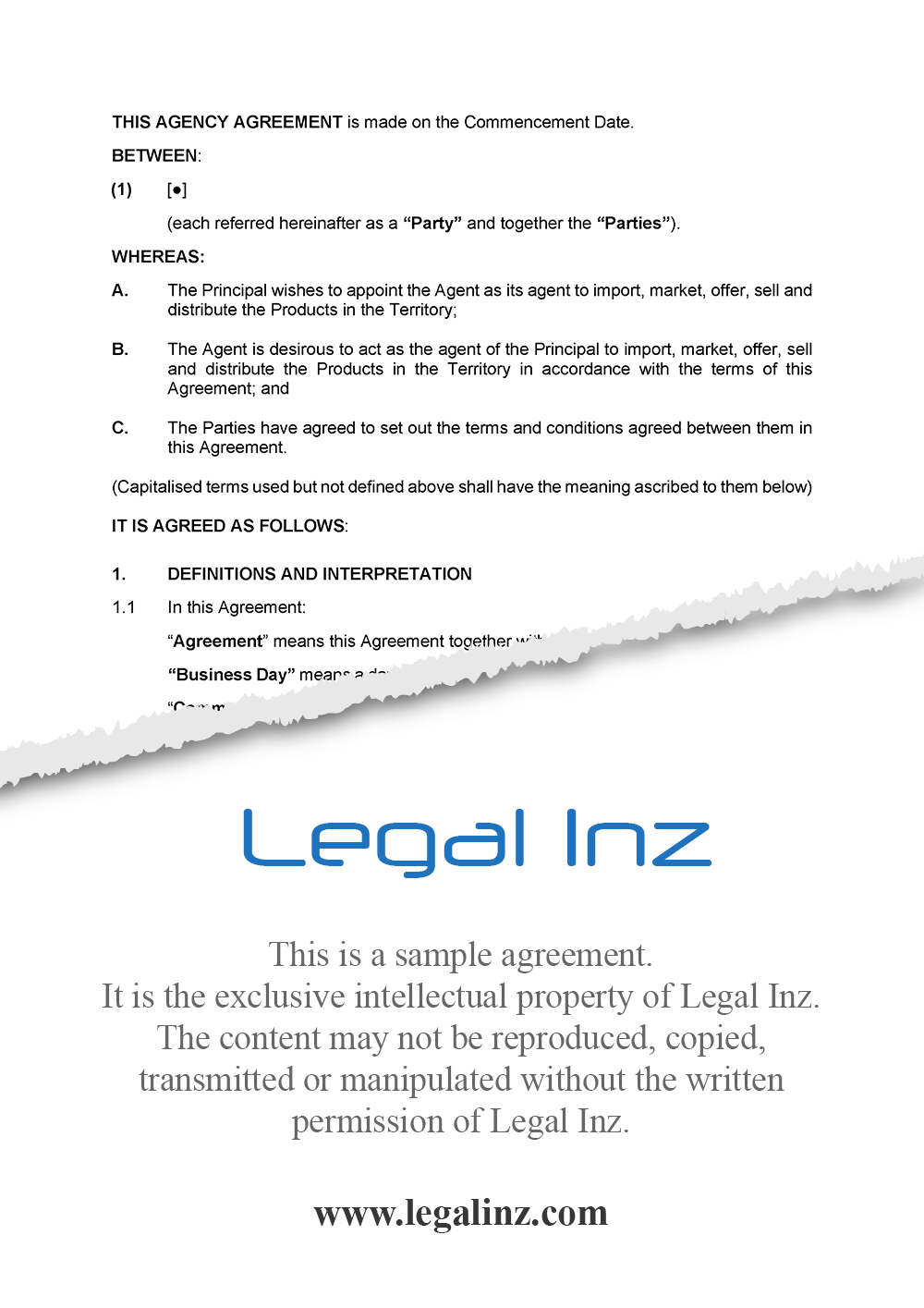An agency agreement defines a relationship between two parties wherein one party, called the ‘agent’, acts as an authorised agent of the other party, called the ‘principal’. Through this agreement, principal typically appoints an agent to import, market, offer, sell and distribute specific products in a designated territory.
Who is an Agent?
An agent is someone who has been authorised to act on behalf of the principal to distribute products in a territory. The agent can import, market, offer, sell and distribute specific products and represent in matters that are defined under the agency agreement. For example: any car dealership which offers selling of cars of a particular brand are basically acting as agents of that brand. Another example would be a French company selling their perfumes in UAE. If they do not establish their own entity in UAE, they can always employ services of an agent based in the UAE so that it can sell these perfumes in the UAE as an agent of the French company.
Who is a Principal?
Principal is typically the manufacturer of the products and takes the services of an agent to act on its behalf. The principal as part of the agency agreement agree on payment mechanism for fee or commission for the agent to perform acts, such as to import, market, offer, sell and distribute, which are clearly defined under the agency agreement. For example, a car manufacturer being a company of the USA, can hire a local entity in UAE to sell their cars in UAE. Thus, USA entity will be the principal who has hired UAE entity as its agent to import and sell its cars in UAE.
Why having an agency agreement can be beneficial?
In today’s world, most of the commercial activity involves agency. Any person or an entity conducting their business can increase their presence in the market by employing the services of an agent. This agent on behalf of its principal, would be doing acts such as import, market, offer, sell and distribute.
An agency agreement also helps a client to save on their finances by employing the services of an agent in a specific Emirate rather than coming up with its own physical presence or office in that territory, thus saving on costs.
What does an agency agreement cover?
An agency agreement can have any terms that the parties may mutually agree upon. However, any agency agreement would usually cover the following:
Personal information with respect to the principal and agent:
- These are important to define the parties to the agency agreement who will engage in the legal relationship of agency created by the agency agreement.
- These would generally include the names, addresses, and email IDs. If one of the parties to the agency agreement is an entity rather than a person, their trade/commercial license should also be included to aptly define the party.
Commencement date of the agreement as well as the expiry date of the agreement:
- Dates are an important aspect in order to determine the duration of the relationship of agency.
- An agency agreement should always have a defined starting date.
- An expiry date may be optional as the agreement may define the end with respect to agency having achieved certain goals/ milestones rather than a specific date of conclusion to the agreement.
Defining agency:
- Under the agreement, what kind of acts are to be sought, such as import, market, offer, sell and distribute, from the gent are important as they form the basis of why the parties entered into an agreement in the first place.
- This should be adequately defined in order to reduce any future issues under the agreement.
Amount of fees and schedule of fees:
- Total amount of fees to be paid in lieu of the performance of agency outlines the consideration that the parties have agreed to enter into the agreement.
- Apart from the total amount, the agreement could also outline the schedule of when and what payment is to be made to the agent under the agreement. These may be subject to specific milestones to be achieved by the agent.
- These may include fixed amount for the agent, commission-based fee, a combination of the two with small, fixed portion and rest on the amount of work done or any other selected remuneration for the parties.
Respective rights and liabilities of the parties:
- An agency agreement should cover rights of each party.
- Agency agreement should also aptly define the respective liabilities of each party under the agreement. These are important to withhold the other party responsible for their acts under the agreement.
Penalties:
- An agency agreement should define consequences of non-performance/ delay under the agreement by either party. These are important since the consequences would outline exactly what a non-defaulting party can seek against the defaulting party.
- An agency agreement could thus incorporate penalties in order to act as a deterrent for the other party to act as per its obligations under the agreement for consequences of breach of terms or delay caused under the agreement.
- While these are not necessary but are advisable in order to protect the legitimate interests of the parties.
Applicable law for the agreement and jurisdiction:
- This is one of the most important clauses in an agency agreement as it defines the law which will govern the agreement as well territorial jurisdiction of any litigation to be filed, if any, assuming any dispute arises in future.
- These attain even more importance in cases which involve parties from different jurisdictions.
- Parties may agree either for litigation or arbitration.
- Our online form allows choosing all possible options in terms of dealing with disputes under the agreement.
Additional terms:
- An agency agreement also incorporates additional terms such as confidentiality, intellectual property rights, non-compete, exclusivity, etc.
The objective of having detailed provisions in an agency agreement to mitigate the risks associated with agency relationship. More streamlined provisions in an agreement allows the parties to have confidence that theirs rights are duly protected. Our agency agreement is compliant with applicable UAE law and regulations.
Our online form provides for a range of customisations that cater to all clients on a case-to-case basis. We provide our clients with more freedom and control in terms of what their agency agreement should cover. Please see our different packages to see various options available to the clients in terms of personal customisation of their agency agreement.







 verified reviews
verified reviews

